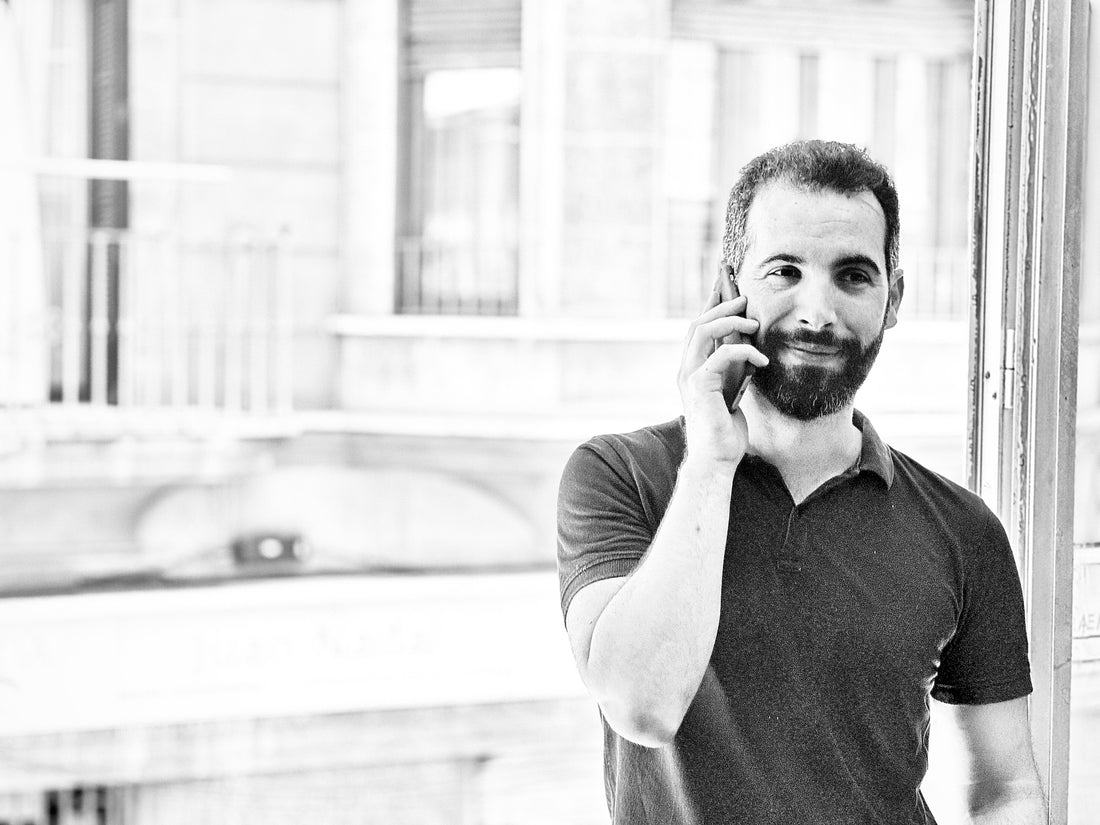One half of law duo, Sbert & Jaume, Xavier Jaume Mascarós was born and raised in Mallorca, giving him a unique perspective when it comes to advising clients about how best to approach buying property in the Balearics. He is our go-to at Agnes & Lorenzo for all questions legal and permit-based, and a valued voice of knowledge and reason throughout every stage of the process. He lives in Palma, where he has easy access to work, schools, and Mallorca’s spectacular beaches.
What should people expect when buying property in the Balearics?
Is it a lengthy process compared to other countries? From my point of view, for a correct property purchase (especially in rustic land), it is important to start by knowing what property you want to acquire with the study of the available documentation and to assess whether it is suitable for the client. The rest of the process depends on obtaining a military permit and when both the seller and the buyer want to sign the purchase agreement.
What is a military permit and how does it apply to rustic land? Does everyone need one?
The military permit is an authorization that must be requested by non-EU citizens. For example, since Brexit, British citizens are required to request it, but only for purchases in rustic land, not urban. However, it may be the case that a British citizen is married to an EU citizen (e.g. of Spanish nationality), and only he would have to apply for the permit. But I must tell you that we have never been denied any permit, or at least the ones we have requested, so it is only a bureaucratic procedure that adds time to the purchase process.
However, and this is important, the military permit only applies to a single property, i.e., it authorizes the acquisition of the one you want to buy. If the client later wants to acquire another rustic plot, they will have to request a new military permit
Where and what is the best place to start when buying property in the Balearics?
That's a difficult question to answer as it always depends on each buyer's preferences. My recommendation is always to visit the island first and see all possible areas (mountain, sea, centre of the island or town/city). When you have a clear idea, it's time to start looking for a property. If you ask me which part of the island is my favourite, I will always say the mountains — far from any neighbours!

What steps can people take to make the process as straightforward as possible?
From experience, what has always worked for me with clients is planning, especially having a brief knowledge of the first steps, and above all, the issues with rustic properties. When I make the first contact with the client, my first questions are, do you have an NIE? Is the house you are interested in rustic or urban? Do you have financing? And perhaps the most important question — what do you want to do with the property?
These may seem very direct questions, but they provide a lot of information and allow me to organise the purchase process from the beginning, especially knowing the reason why the client wants the property, whether it is to renovate it, expand it, or rent it for tourism. But without a doubt, the main thing is to have an NIE number, a Spanish bank account, and financing (cash or mortgage). With these, it is enough to buy any property.
What can buyers expect once an offer has been made on a property?
For me, making an offer is secondary since it is more important to ensure that the rustic property meets their requirements and, above all, that they have been able to review all the documentation of the property. With all this information, the offer can be more accurate. Once accepted, the purchase process begin
Are there particular taxes that need to be taken into consideration?
There are three kinds of taxes: local taxes (property tax paid every year to the municipality), transfer tax (paid after signing the purchase deed, the amount of which depends on the sale price, the higher the amount, the higher the percentage) and wealth tax, which applies to assets over 700,000EUR after deducting mortgage
What are the most common mistakes that people can avoid when buying property in the Balearics?
The first mistake is not checking the documentation of the properties, the second is relying too much on the real estate agent (many of whom do not have knowledge about the legality of constructions) or the seller (who may believe everything is correct), and the third is not understanding what they are really buying, in the sense that the house they are buying or part of it may not be legal, meaning it does not have a construction license. Other mistakes stemming from Brexit include not applying for the military permit.
How long does the process of buying property in the Balearics usually take?
Purchases requiring a military permit beforehand usually take about 3 to 4 months from the time the earnest money contract or option to purchase is signed.
What topics do you get the most inquiries about?
Typically, questions are about the legality of constructions and obtaining the occupancy certificate. What is difficult to explain and make the client understand is that there may be houses with water and electricity that are completely illegal (i.e., without a construction license) registered in the property registry and appear in the cadastre. What really matters are the construction permits.
What other tips can you give to people looking to buy in the Balearics?
The tips I use personally are: 1. Never rely solely on information from the property registry or cadastre. The first may show illegal constructions, and the latter is purely a fiscal issue. 2. Always request all documentation for the property (plans, permits, occupancy certificate, etc.).
There are many stages to owning a home in the Balearics, is it worth it?
Yes, in my opinion, it is worth the effort to own property in the Balearics. Although the process can be lengthy and requires a significant investment, the Balearic Islands are a popular tourist destination and a coveted location for real estate. Additionally, the quality of life in the Balearic Islands is high, with an excellent climate and beautiful beaches. As a result, investing in a property in the Balearics can be a smart long-term decision for both personal use and investment.
You’re from Mallorca, is that a benefit when advising clients about buying property there?
My philosophy is to make clients feel comfortable with their properties and have the peace of mind that they won't have problems in the future. Having been born and raised here, I have seen many things and situations where poor advice can create problems with the administration, and there have even been situations where the entire property had to be demolished.
Why is it important to enlist the help of a lawyer such as yourself?
I believe it is necessary for the peace of mind of the client and given the lack of professionalism in the sector, as well as sellers who want to sell as soon as possible. As I can only speak for myself, I can say that our goal is always to be transparent with the client and explain the situation of the property they want to acquire. And if that property is not the right one because it does not meet their objectives and expectations, then we tell them so they can make the decision.
Any final thoughts?
My recommendation is always to go to a serious and professional real estate agent (yes, they do exist). Over the years, real estate agents have grown in number and the vast majority are people who do not know the industry and only aim to mediate a purchase and collect their commission. They lack knowledge of their products and do not offer even minimal advice. Lastly, after making a purchase exceeding 500,000EUR, non-EU citizens can apply for the Golden Visa, which allows them to enter and exit the Schengen area - important post Brexit.


